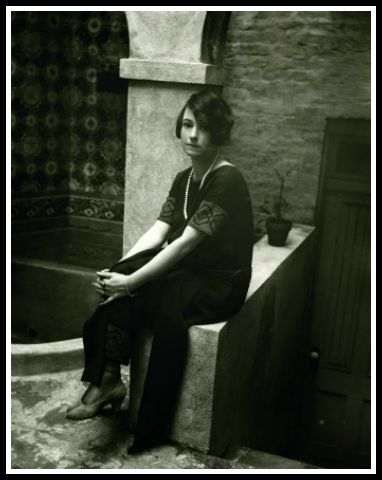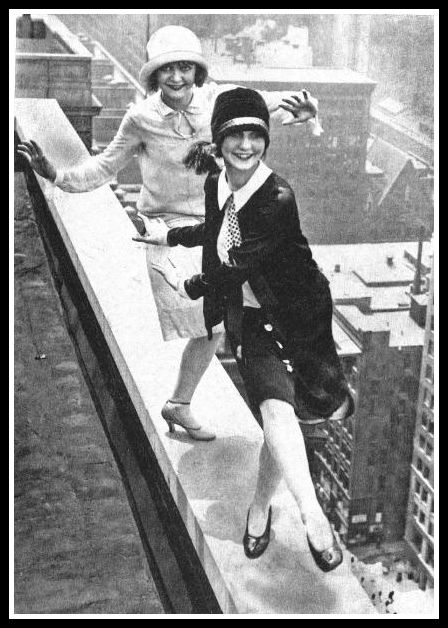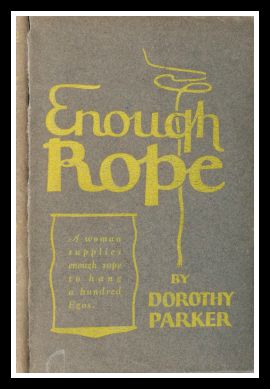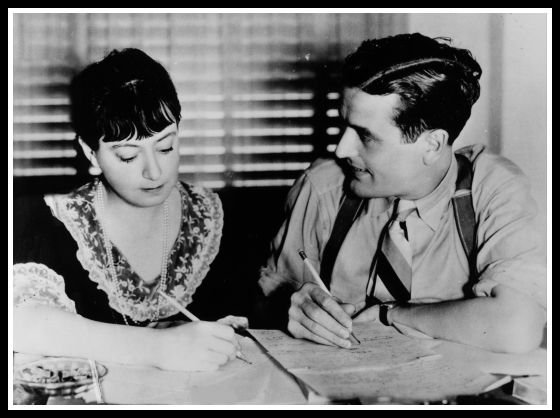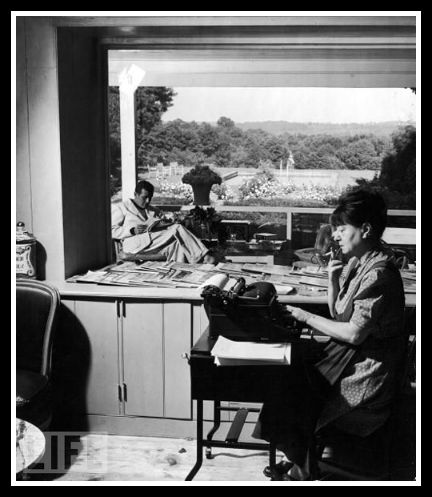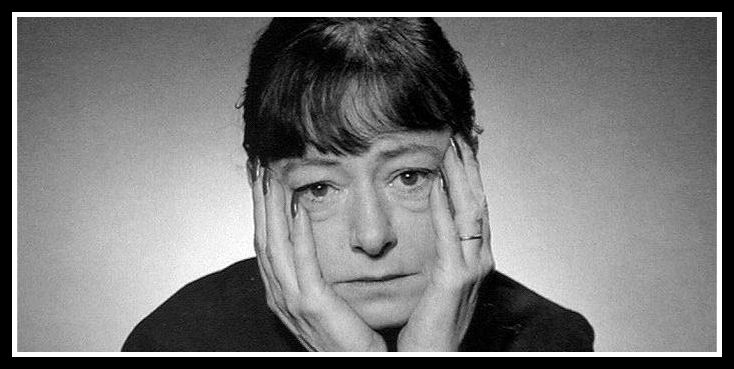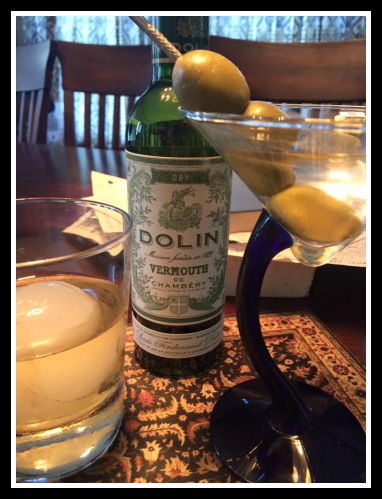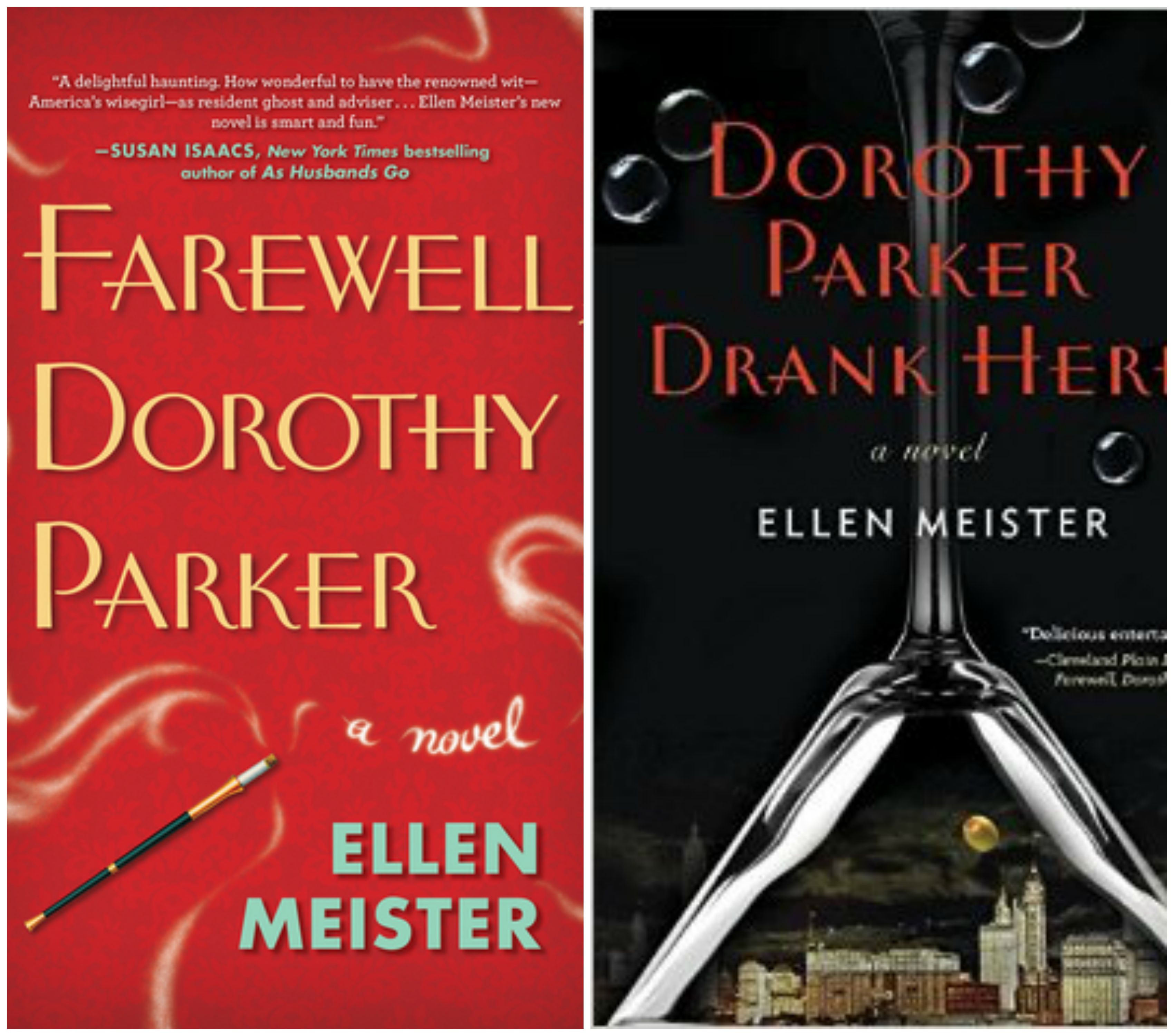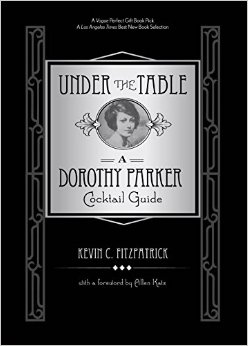When we left Dorothy Parker in Part One she was hanging on tenuously at best. Her marriage to Eddie Parker was over, her relationship with George MacArthur was over and the fall-out somewhat stabilized and her suicide attempt was unsuccessful. Professionally she was cobbling together a career as a freelance writer but powered by a steady diet of alcohol she was dancing on the edge.
Her first book of verses, Enough Rope (cheery title, right?) was fairly successful and she began to work on a novel…well, she traveled to Europe with Ernest Hemingway, socialized with the F. Scott Fitzgeralds (among others), and partied quite a bit under the guise of writing a novel. After all, when you are teetering in a downward spiral, a grand tour with literary greats and heavy partiers is just what you need to help you focus on work.
When she returned to New York she didn’t have a novel but had managed to put together another collection of verses. Her body of writing is very large, including an O’Henry award for her short story, Big Blond, short story collections, screenplays and other books of verses (don’t call them ‘poetry’) but Dorothy would never publish a novel:”I’m a short distance writer.”
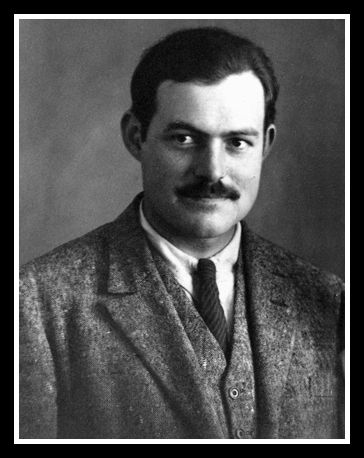
Ernest Hemingway, who wouldn’t want to travel with him? “Come! See the bullfights in Spain,” he said…
Dorothy’s life wasn’t all angst at a keyboard and clinking cocktail glasses, it was also dotted with strong political convictions and acts of social justice. Her first high profile, public demonstration of support occurred when several of the Algonquins were moved by the case of Sacco and Vanzetti (we give you a tutorial in the podcast) who, in 1927, were convicted and executed for murder. Dorothy thought that they were innocent, spoke loudly for their cause, marched in protest and was arrested.
As always, the juicy bits are in the podcast.
During the Depression, the lure of big salaries was drawing the New York Literati to Hollywood. When Dorothy was about 40 she answered the call, married writer Alan Campbell and headed off to California as the (better paid) half of a husband and wife script writing team. The pairing lead Dorothy to a (brief) folly into domesticity with a second home in Bucks County, Pennsylvania and several years of unsuccessful attempts to have a child.
Hollywood wasn’t Dorothy’s favorite place and the work not her favorite writing genre, but she did find her people as she became more politically active in Left Wing causes. But involvement in these organizations would later catch the eye of the FBI during the McCarthy era and lead to her being blacklisted from Hollywood.
When the US entered World War II, Dorothy waved farewell to her second husband entering military service. When the war ended, Alan didn’t rush back to the turbulent marriage he had left and the pair divorced in 1947.
Then remarried in 1950.
Then separated in 1952. They would reconcile (more like “work out an arrangement”) in 1956 and remain married until Campbell’s unintentional suicide in 1963. (Yes, we talk about the details of that, too.)
After Alan’s death Dorothy returned to hotel life in New York, but her 70 years of hard living did her no physical favors. She was frail, ill and under the care of a full-time nurse. The four years after Alan’s death were painful, lonely and nothing like the fast pace of the rest of her life.
On June 7th, 1967 Dorothy Parker, author, poet, playwright, civil rights activist and critic died of a heart attack at the age of 73.
But that wasn’t the end of her tale, oh no! She left her entire estate (which wasn’t huge but did included the rights to her work) to Martin Luther King, Jr because she admired what he was doing to further civil rights. Upon his death a couple of years later, as she had stipulated in her will, the money was turned over to the NAACP much to the dismay of Dorothy’s friend Lillian Hellman. Either to in anger or forgetfulness, Lillian (the executor of of the will) let Dorothy’s ashes sit in a file cabinet at her lawyer’s office for 17 years. Eventually they were discovered and turned over to the NAACP who interred them in a memorial garden where her epitaph includes a classic Parkerism: “Excuse my dust.”
TIME TRAVEL WITH THE HISTORY CHICKS
Right now (go ahead and click, it will open in a new window) get yourself over to The Dorothy Parker Society. This is the mother-lode of all things Mrs. Parker. Photos, audio of her reading, tours, stories, gear and ways to meet other fans…just go check it out for yourself- it’s an exhaustive and wonderful collection.
YouTube has several audio bits of Dorothy (or others including Tallulah Bankhead and Anne Hathaway) reading her poetry, sorry–verses– including this one of Resume. (And you might like the hour long, Ten Year Lunch documentary about the Algonquin Round Table.)
What?! You haven’t been to the New York Public Library’s What’s on the Menu? Go. We’ll make it easy. BIG OL’ RABBIT HOLE OF MENUS
While you are clicking around online, if you are wanting to be crushed (or delighted) by verification of quotes credited to people who may not have said them, fall into the rabbit hole that is The Quote Investigator.
Obviously you are going to want to start reading some of the works of Dorothy Parker. Because we KNOW you like audio content, Libivox has two verse and one short story collection to get you started. Amazon has a collection of her works HERE but we recommend that you start with The Portable Dorothy Parker. Classic.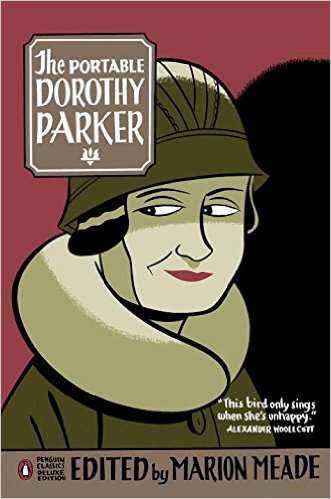
Dorothy Parker never wrote her autobiography but we liked these biographies:
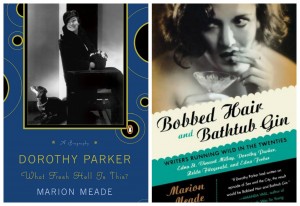
What Fresh Hell is This, and Bobbed Hair and Bathtub Gin both by Marion Meade (The latter a look at several Jazz Age writers written very much like a novel intermingling their stories.)
And the two fiction books Susan recommended (the second of which she has since read and enjoyed as well as the first):
You’ll need this when you throw your own Algonquin Round Table party.
Movies…ah, well…not a whole lot to talk about here other than the 1994 Mrs. Parker and the Vicious Circle with Jennifer Jason Leigh as Dorothy. We gave this one mixed reviews and neither thought it was outstanding, but if you can find the damn thing, you might give it a whirl. It does have a good cast.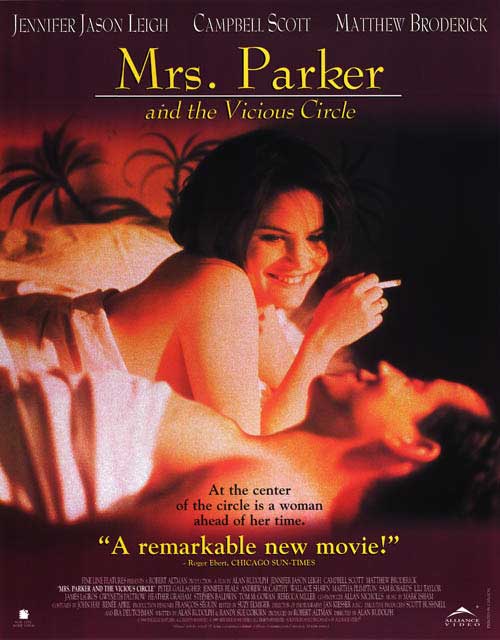 If you would like to know more about the Sacco and Vanzetti case, here is a quite thorough yet readable coverage of it all. The Atlantic
If you would like to know more about the Sacco and Vanzetti case, here is a quite thorough yet readable coverage of it all. The Atlantic

